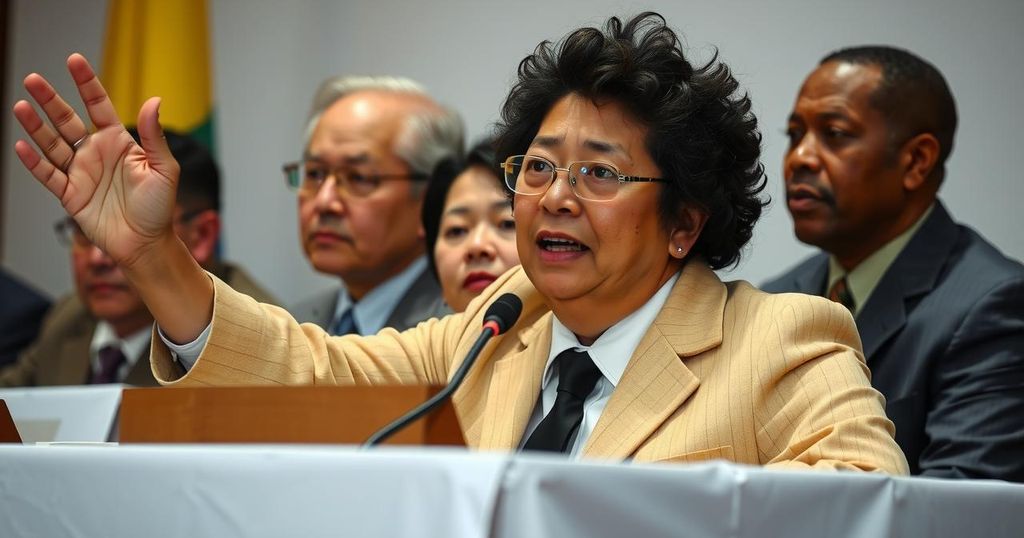Bolivia’s recent judicial elections have sparked controversy, as candidates employed questionable tactics for visibility amidst a system criticized for its lack of transparency and the politicization of judiciary roles. The elections have historical context related to Bolivia’s judicial reforms driven by political agendas, prompting voter apathy and raising alarms about democracy and judicial integrity. The situation mirrors broader challenges in Latin America, particularly concerning the balance of power and the rule of law.
Bolivia has recently conducted a highly contentious popular vote to elect its top judges, despite prohibitions on election campaigning. Observers noted candidates utilizing unconventional methods to gain visibility, such as featuring their images on snack packaging. This electoral system is unique to Bolivia, raising concerns about its implications for judicial independence and governance, particularly as surrounding political dynamics have led to widespread voter apathy and skepticism regarding the legitimacy of the elected judges. Critics argue that the current system has converted judicial appointments into political tools, rather than based on qualifications and merit; this belief is echoed by senior officials and experts who voice concerns about the politicization of the judiciary in numerous Latin American countries.
Bolivia’s method of electing its top judges deviates from traditional appointment processes, intending to create a more democratic judiciary. However, the system has faced criticism for fostering corruption and party dominance, ultimately undermining critical judicial independence. Many analysts point out that this election follows a broader trend in Latin America where politicization of the judiciary poses significant threats to democracy, as seen through past controversies surrounding judicial appointments and political maneuvers, as exemplified by former President Evo Morales’s actions. The recent election was further complicated by a delay orchestrated by the Constitutional Court, which aligns with the ruling party’s interests, highlighting ongoing political tensions.
The judicial elections in Bolivia demonstrate a complex interplay between democracy and judicial independence, with significant concerns raised about the integrity and function of the judiciary under a politicized electoral system. The elections, marked by low expectations for voter turnout and skepticism about their legitimacy, reflect broader challenges in the region regarding the balance of power among governmental branches. Observers are keenly watching Bolivia as it embarks on this unique electoral process—one that holds implications for the future of judicial practices in Latin America.
Original Source: www.voanews.com






